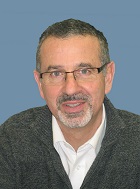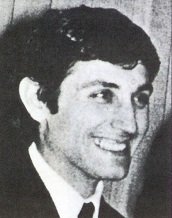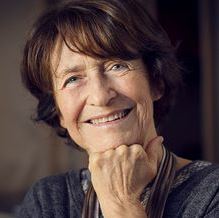
A radio program by the European Institute of Jewish Music, hosted by Hervé Roten
MUSIQUES JUIVES D’HIER ET D’AUJOURD’HUI – April 10, 2018, JUDAÏQUES FM (94.8), 21H05. Radio program in French
On the occasion of the release of the CD Coplas Sefardies, vol. 1 (Rondeau Production), Hervé Roten receives Ketty Menasce-Hemsi, the youngest daughter of the composer Alberto Hemsi (1898-1975) who devoted her life to the collection and dissemination of Judeo-Spanish musical heritage.
Born from Italian parents (Livorno), on June 27, 1898, in Cassaba – a Turkish village east of Smyrna (Izmir) – Alberto Hemsi began his studies at the Alliance Israelite Universelle school. Gifted for music, he was sent to Milan by the Israelite Musical Society of Smyrna. Accepted in 1914 at the Royal Conservatory of Music in Milan, he did serious studies of piano, harmony, counterpoint and composition.
Called in the army in 1917 as an Italian subject, he was seriously wounded at the right arm. Appointed captain at the end of hostilities, he left the army to devote himself only to piano and composition. In 1919, after obtaining his instrumentation diploma, Hemsi returned to his native country.
Marked by a lecture from his teacher of history of music in Italy, claiming the absence of any Jewish music, Hemsi decided – like Béla Bartok (1881-1945) – to collect traditional Judeo-Spanish songs . Having unfortunately no recording material, he would undertake between 1923 and 1937 several ethnographic campaigns in the Sephardic communities of the former Ottoman Empire (Izmir, Salonica, Rhodes …) that would allow him to transcribe from ear 230 poems and 68 melodies. From this important corpus, Hemsi would retain 60 traditional melodies for which he would compose original piano parts. These 60 melodies, published in 10 notebooks, and which constitute the cycle of Coplas sefardies, offer a symbiosis between the traditional Judeo-Spanish monody and Western scholarly polyphony.
Settled in Alexandria in 1930, Hemsi was forced to flee Egypt at the end of 1956. Based in Paris, he was the musical director of two Sephardic synagogues and musical liturgy classes at the Seminaire Israélite de France. Musicologist, hard worker to the Judeo-Spanish cause, he hosted a series of broadcasts in Spanish language on French radio to better make known the Judeo-Spanish folklore. Shortly before his death in 1975, he was elected correspondent of the Royal Academy of Fine Arts of San Fernando de Madrid in recognition of his work on Sephardic music.
Alberto Hemsi bequeaths to posterity a work still little known gathering about sixty pieces often inspired by the Judeo-Spanish tradition.
Learn more about Alberto Hemsi
Wath the video dedicated to Alberto Hemsi and his work
Search the archive collection around Alberto Hemsi deposited at the EIJM
Listen to excerpts of the CD Coplas sefardies (Rondeau Production)
Order the CD Coplas sefardies published by the EIJM
Order the sheet music of the Coplas sefardies

Ethnomusicologist, he quickly developed an interest in the safeguard and digitization of archives, subjects he taught for several years in Reims and Marne-La-Vallée universities.
Author of many articles, books and recordings related to Jewish music, producer of radio programs, Hervé Roten is recognized today as one of the best specialists of Jewish music in the world.



